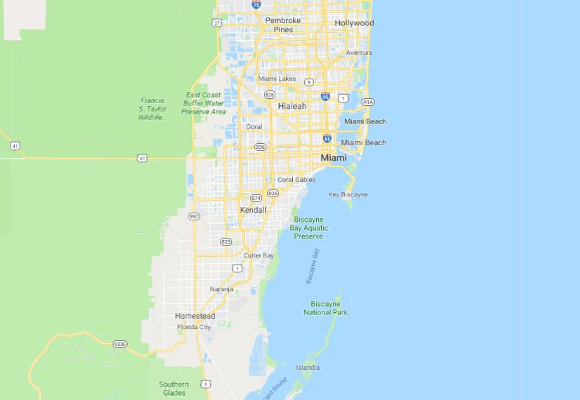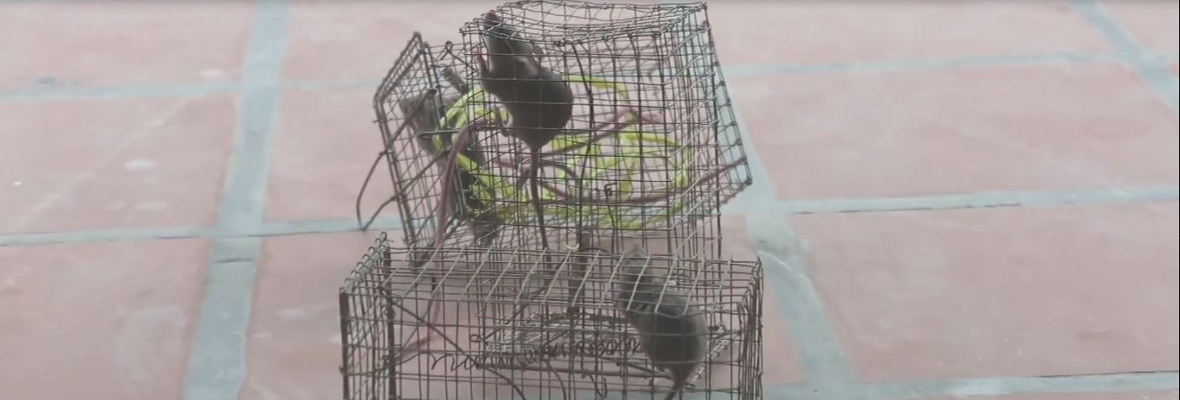
Miami-Dade County Florida Wildlife Removal
Welcome to Pest Animal Miami-Dade County! We are a wildlife removal company servicing Miami-Dade County, FL. When we arrive, we will inspect your building using a 32-point inspection process. It’s a comprehensive and extensive inspection, but one that will pinpoint the problem areas of your property - the areas in which the animals are gaining access. Once we have identified those, we can use exclusion devices to remove the critters from the main holes, sealing the smaller ones. When all critters are safely removed from the property, the exclusion devices allowing an exit, but not an entrance, the remaining holes are sealed, and an extensive repair project will take place. This ensures that all damage caused by the wildlife cannot cause further problems, and also that the animals themselves won’t be able to re-gain access. It’s a tried and tested method for wildlife control, and one that we have learned over the last ten years we have been working in this industry. That’s why we have been voted as the number one company in the metropolitan area for wildlife control and removal, and that’s three years running too. Our customers love us, not only for our professional service and standard of work, but also for the friendly people who work for us. That’s what you get when you hire a family run business, and that’s why you should get in touch for a free quote today! Call us now at 305-560-5377 for your Miami-Dade County wildlife control needs.
About Pest Animal Miami-Dade County and Our Services:
Same-day or next-day appointments.
We answer our phones 24/7.
Property inspections and in-attic inspections.
Nuisance wildlife trapping and removal.
Critter damage repair to your home.
Attic restoration and decontamination.
We never use poisons! We don't handle insects.
Miami-Dade County dead animal removal inside houses.
Florida Snake control services
Bird Removal and Prevention
Call us any time to discuss your wildlife problem!
Our Service Range

Our Service Range
We service Broward County, Monroe County, and Collier County. We also service Hialeah, Homestead, Kendall, Doral, Coral Gabels, Aventura, Cutler Bay, Opa-locka, Florida City, Sunny Isles Beach, Key Biscayne, Palmetto Bay, Pincrest, Bal Harbour, Sweetwater, Surfside, Fisher Island, and more.Miami-Dade County Wildlife Removal Tip of the Month: What Do Wildlife Rehabilitators Do With Rodents?
A wildlife rehabilitator is a person who has gone through proper state channels and received official certification. They take in orphaned, sick or injured wild animals and try to restore them to health so that the animal can be released back into the wild. They work in conjunction with a veterinarian, their state’s wildlife department, and any other agency that may have an interest in the animals. This applies to the protection of endangered species and certain other wildlife such as eagles, as well.

Rehabbing Rodents
There are several things that wildlife rehabbers do with the rodents received into their care. One is to try and completely rehabilitate the rodent. This means restoring them to their full health and ability to cope and survive after being released back into the wild. If the rodents are newborn orphans, this means feeding them frequently and around the clock. It also means helping them to urinate and defecate until they are old enough to catch on to do it themselves. Essentially they are the infant rodents’ mother.
When to Rehab and When Not To
If you come across what you believe to be an orphaned rodent, wait a few hours to ascertain that the mother isn’t just out somewhere and will be returning. When you are sure that they are really orphans, see if there are other adult rodents in the near vicinity that may adopt the orphans. If this doesn’t seem likely, then call a wildlife rehabilitator and make an appointment to bring the orphans to him or her.
Injured Rodents
It will depend on the type and severity of the injury as to whether or not the rodent will be treatable. If the rodent is too badly injured, the kind thing to do is to put it out of its misery. A vet or a wildlife rehabilitator will have the proper equipment to do this in the most humane way possible.
Release
Before a rehabilitated rodent can be released back into the wild, the rehabber must be certain that it can survive and live a normal life. This means that it must be able to hunt for its own food and know how to avoid predators. It also means that the animal must not have had too much human contact to make it dependent on humans.
Food and Research
There are some companies that will accept small rodents, such as mice and rats, to euthanize, clean, and freeze to sell to zoos or other wildlife refuges for food for the animals who naturally eat rodents. Some are also given to colleges or other institutions for research or display.

